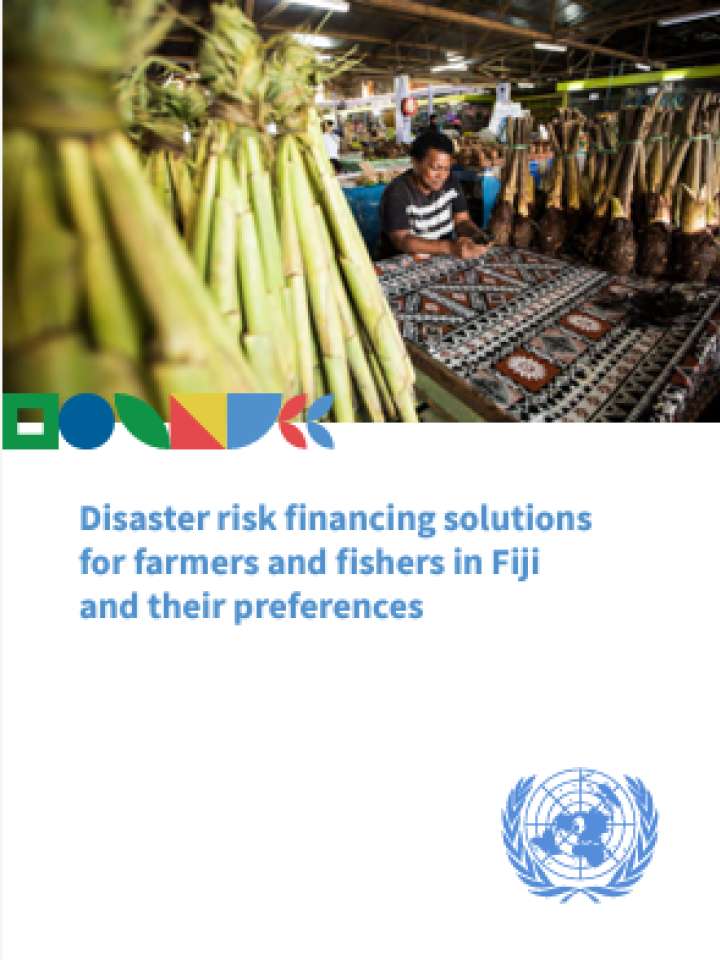Disaster risk financing solutions for farmers and fishers in Fiji and their preferences
Under the Pacific Insurance and Climate Adaptation Programme (PICAP), implementation partners conducted a study with the University of the South Pacific to understand farmers’ and fishers’ perspectives such as: (1) which climate risks farmers and fishers in Fiji are facing; (2) their exposure to cyclones and drought; (3) what coping and adaptation measures they are taking; (4) their individual needs for and access to financial and institutional support after being affected by natural hazards; (5) their preferences for disaster risk financing solutions, such as climate risk insurance. This evidence note showcases the first insights and findings from this study.
Some of the key insights from the study include:
- Farmers and fishers in Fiji perceive cyclones as a slightly more imminent risk than drought, and they prefer separate insurance coverage for those events.
- Most households have to rely on their savings to recover from the impacts of cyclones or droughts. Those savings are usually not intended for this purpose, and most households would not be able to support themselves with their savings for longer than three months in case of a total loss of income.
- Existing disaster risk financing options do not match the need of farming and fishing communities to cope with the magnitude and frequency of climate-induced disasters.
- Impacts of natural hazards have gender dimensions. Men are more affected in their income-generating activities. Women are more likely to have to cope with an increase in community, household and unpaid care work and are also more likely to receive non-financial support when affected by extreme weather events.
- A high preference for a cyclone insurance product further underscores that cyclones are perceived as a higher risk than droughts. Households need substantial financial resources to re-establish their livelihood after being affected by natural hazards.
Explore further
